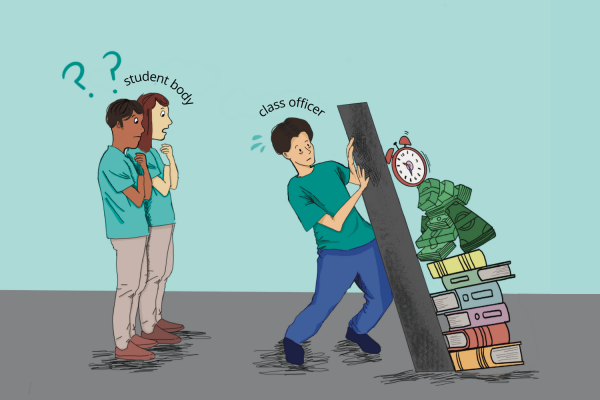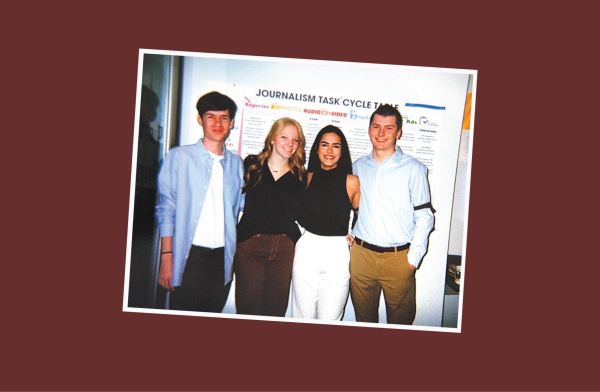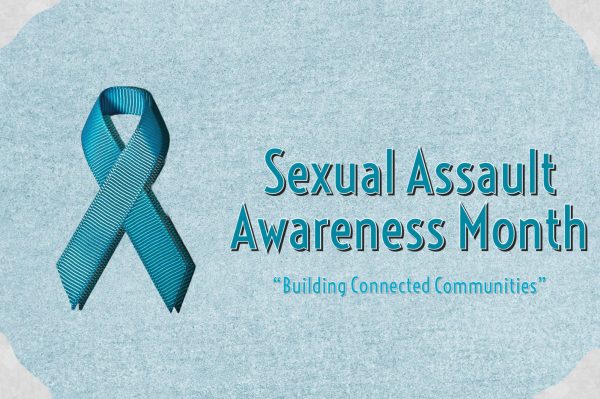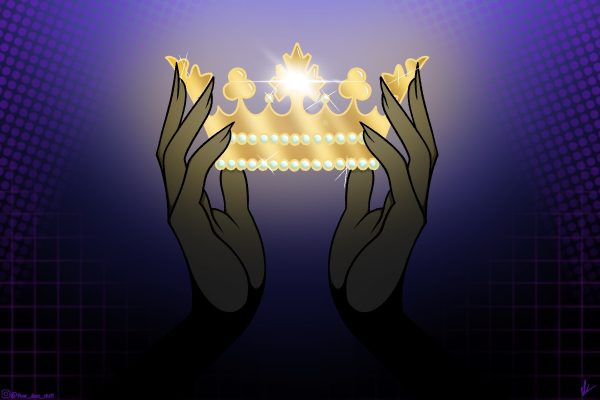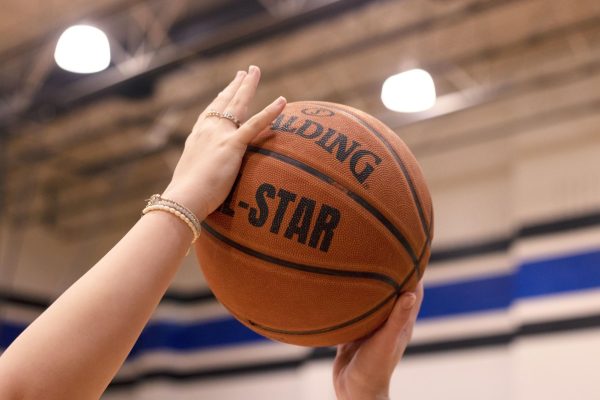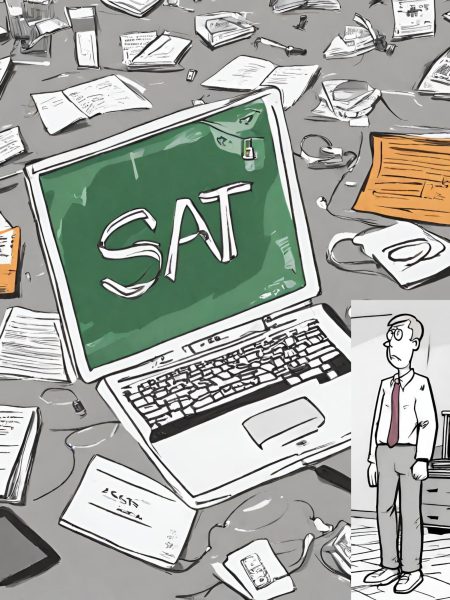The True History of Thanksgiving and Why You Should Reconsider How You Celebrate
November 24, 2020
The smell of a roasting turkey, dinner with family, and the all too familiar viewing of A Charlie Brown Thanksgiving: this is what most Americans envision for their plans on every fourth Thursday in November. Thanksgiving is a day designated for food, football, and the festive Thanksgiving Day Parade. But this needs to change.
Most people believe that we use this day to commemorate the survival of the white colonizers in Plymouth because of the generosity of the original Indigenous inhabitants. We are taught to imagine a scene of shared food and stories where Native Americans and the English alike break bread at the same table and sing Kumbaya in anticipation of a great friendship between them.
This story is vastly flawed, to the extent that it borders falsehood. Innumerable Indigenous activists have been preaching about the importance of acknowledging the truth about the holiday for decades, if not centuries. For example, Kristina Stanley, a member of the I-Collective—a group of Native American chefs and activists—commented on her thoughts about Thanksgiving in an interview with Healthyish last Thanksgiving. “There’s nothing wrong with celebrating family and gratitude. My hope is that people can do so while also learning about the holiday’s true origins. Seek out Native narratives,” she says.
To understand these true origins, it is important to address the facts. The Indigenous people involved with Thanksgiving, so rarely named, are the Wampanoag people. Even before the arrival of the Mayflower in 1620, they had been slaughtered, enslaved, and devastated by disease that Europeans had inflicted on them. They faced threats from neighboring Indigenous Nations, and the expanding virus that was Europeans taking over their land. It was then, out of pure necessity, that Sachem Massasoit Ousamequin, Great Chief of the Wampanoag, with the help of Tisquantum (also known as Squanto) who learned English after being kidnapped and sold, then escaping from slavery, made the controversial decision to attempt to create an alliance with the Plymouth settlers.
The danger with leaving it at that, however, is that almost all of what we know about the history of Thanksgiving is from records made by white Europeans. Bias in these accounts is inevitable. It is even debated whether or not Ousamequin’s people were invited to the infamous feast of 1621 in the first place. The people of Plymouth had even built a wall around their community to keep Native Americans from reaching them. And, with Sachem Massasoit’s death, the English killed the peace treaty he had established.The generally accepted perception of what occurred during the first Thanksgiving refuses to acknowledge the selfishness of the colonizers.
By the mid 17th century, tensions continued to escalate between the colonizers and Indigenous groups located in what is now the eastern U.S. This culminated in King Philip’s War. This whitewashed name describes a last-chance effort on the part of Indigenous groups in New England to fight back against the people who massacred them and halt the settlement of the English who tried to force authority over them.
Now we know what comes next: over the next centuries, the establishment of the United States of America would result in the slaughter, theft, rape, forced displacement, marginalization, abuse from military forces, and other, more “subtle” forms of oppression against Indigenous groups. Native Americans were not even guaranteed basic rights as U.S. citizens until 1924. Many were prohibited from voting, solely because of their heritage, until 1957. Any peace treaty that once existed has long since been shattered.
The U.S. government has since attempted, rather feebly, to both cover up the oppression of Indigenous groups and hide the true history of the origins of the holiday. There has been some progress made. In Plymouth, Indigenous people observe the National Day of Mourning instead of Thanksgiving. November is now National American Indian Heritage Month.
However, this does not seem to amount to much considering the frankly horrifying lack of action the federal government has taken to protect Indigenous people. The lack of Indigenous representation in our government is inexcusable. There are numerous ways the current president and his administration have failed to support Indigenous people, including cutting federal programs, green-lighting pipeline projects, promoting voter suppression with strict voter ID laws, destroying sacred lands for the wall at the southern border, openly using offensive language, and otherwise making broken promises—the list truly goes on.
Clearly, the holiday encourages a narrative that emphasizes the name of the ship the pilgrims used to arrive on this continent over the names of the Indigenous groups whose land was stolen by them. We must change our approach to Thanksgiving, and how our country has treated Native Americans.
So, how can we do that? Educate yourself. Take the time to listen to marginalized groups. Support Indigenous artists. Advocate for politicians that fight for the rights of Indigenous people. Observe November 26th this year by celebrating Native American food. Go out of your way to support Indigenous people, especially considering Indigenous communities have been disproportionately affected by COVID-19. A great place to start would be to check out Seeding Sovereignty, at https://seedingsovereignty.org/, and this article about how to support Native communities in the midst of the pandemic at https://www.teenvogue.com/story/indigenous-organizers-fighting-coronavirus-native-american-communities.
If you would like to learn more about the real history of Thanksgiving and the perspectives of Indigenous people on the subject, check out these sources:
History:
https://www.theatlantic.com/ideas/archive/2019/11/thanksgiving-belongs-wampanoag-tribe/602422/
Native American perspectives:
https://time.com/5457183/thanksgiving-native-american-holiday/
http://www.uaine.org/suppressed_speech.htm
https://www.youtube.com/watch?v=K7jLeBWMA0U&feature=emb_logo
This story was originally published on The Foreword on November 23, 2020.



























![IN THE SPOTLIGHT: Junior Zalie Mann performs “I Love to Cry at Weddings,” an ensemble piece from the fall musical Sweet Charity, to prospective students during the Fine Arts Showcase on Wednesday, Nov. 8. The showcase is a compilation of performances and demonstrations from each fine arts strand offered at McCallum. This show is put on so that prospective students can see if they are interested in joining an academy or major.
Sweet Charity originally ran the weekends of Sept. 28 and Oct. 8, but made a comeback for the Fine Arts Showcase.
“[Being at the front in the spotlight] is my favorite part of the whole dance, so I was super happy to be on stage performing and smiling at the audience,” Mann said.
Mann performed in both the musical theatre performance and dance excerpt “Ethereal,” a contemporary piece choreographed by the new dance director Terrance Carson, in the showcase. With also being a dance ambassador, Mann got to talk about what MAC dance is, her experience and answer any questions the aspiring arts majors and their parents may have.
Caption by Maya Tackett.](https://bestofsno.com/wp-content/uploads/2024/02/53321803427_47cd17fe70_o-1-1200x800.jpg)
![SPREADING THE JOY: Sophomore Chim Becker poses with sophomores Cozbi Sims and Lou Davidson while manning a table at the Hispanic Heritage treat day during lunch of Sept 28. Becker is a part of the students of color alliance, who put together the activity to raise money for their club.
“It [the stand] was really fun because McCallum has a lot of latino kids,” Becker said. “And I think it was nice that I could share the stuff that I usually just have at home with people who have never tried it before.”
Becker recognizes the importance of celebrating Hispanic heritage at Mac.
“I think its important to celebrate,” Becker said. “Because our culture is awesome and super cool, and everybody should be able to learn about other cultures of the world.”
Caption by JoJo Barnard.](https://bestofsno.com/wp-content/uploads/2024/01/53221601352_4127a81c41_o-1200x675.jpg)




